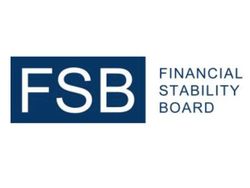|
this article originally appeared in the nytimes.com FRANKFURT — The Financial Stability Board, a panel made up of central bankers, finance officials and top regulators from the world’s largest economies, plans to announce proposals Monday that would double the amount of money that large banks would be required to have on hand to absorb losses. The purpose of the new rules, which would not take effect until 2019 at the earliest, is to curtail risk-taking and protect taxpayers from having to bail out large banks in times of crisis, as happened on a grand scale during the financial crisis in 2008. The new proposals, which have been hinted at for several weeks, aim to shift the burden of bank failures so that it falls more squarely on bank investors and the banks themselves. But the proposals are certain to face stiff opposition from the banking industry, which is likely to argue that the rules would force banks to curb lending, hurting economic growth. Banks and other interested groups have until Feb. 2 to submit comments on the rules. The rules would allow large banks to be shut down “without recourse to public subsidy and without disruption to the wider financial system,” Mark J. Carney, the governor of the Bank of England and chairman of the Financial Stability Board, said in a statement. The rules would apply only to so-called global systemically important banks — banks that are so big and interconnected that their problems can create economic and financial havoc. Banks in emerging markets would initially be exempt from the rules. If adopted, the rules would probably have the most impact on lenders like Deutsche Bank in Germany or BNP Paribas in France, which use a high proportion of borrowed money to do business. These banks might need to divert profit or sell new shares to raise more capital, or else jettison some of their most risky activities. The new rules would have less impact in the United States, where regulators have already approved similar standards for the eight largest banks that take effect in 2018. The Financial Stability Board has a mandate from the Group of 20industrialized nations to develop guidelines that serve as a template for national regulations. The rules formulated by the board are not obligatory for individual countries, but governments face considerable international pressure to adopt them. Click here to read the entire article from the nytimes.com
0 Comments
Leave a Reply. |
Archives
July 2024
|
Love You Dreaddi | Stopwatch Creative | Colaeb | It's Bigger Than Business Podcast | Terms of Use | Submit | Est. 2014


